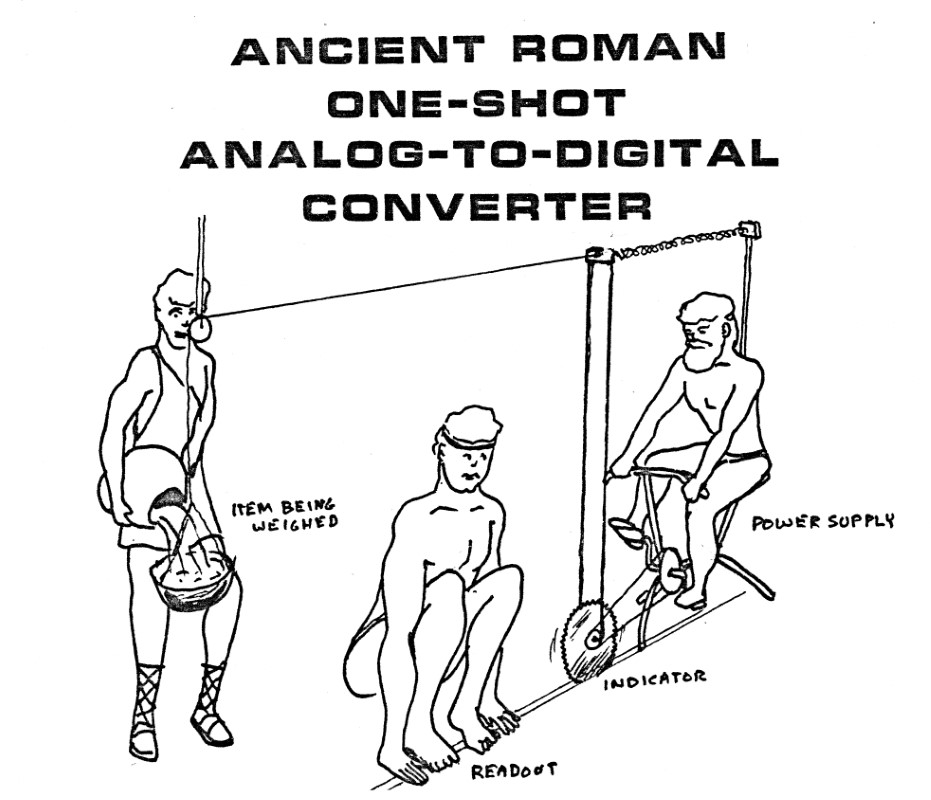| By: Paul S. Cilwa | Viewed: 7/26/2024 Posted: 12/10/2019 |
Page Views: 1660 | |
| Topics: #Scient #Humor | |||
| Those Romans were mighty clever. | |||

Most Americans have heard, by now, of the terms "digital" and "analog", and know they have something to do with computers. The difference between analog and digital technologies is that in analog technology, information is translated into electric pulses of infinitely varying amplitude. In digital technology, translation of information is into a binary format (zeroes and ones) where each bit is representative of two distinct amplitudes. Since analog signals allow for an infinite degree of gradation between values, and digital data can only represent specific, fixed-point values, digital signals lose data compared to analog; but a good digital-to-analog converter is able to approximate the original analog signal by allowing the digital values to "slide" one from the other, thus recreating the infinite variety between discrete values.
One would think that such a device would be a new invention. But it occurred to me that, since "digits" are also fingers, the ancient Romans had the potential to invent an analog-to-digital converter of their own.
The readout is a Greek slave whose hands and feet have been bound in such a way that the digits extend over a track. A circular cutting blade fits into the track, suspended from overhead by a line made of cat gut. The blade is made to spin at a high speed by a second Greek slave who peddles a clever gear contraption designed by Pliny the Younger.
The line from which this blade is suspended is attached to a spring, mounted on the power supply, and to a wire pulley at the end of which is suspended a weighing basket.
When the item to be weighed is placed in the basket, its weight causes the spinning blade to move toward the first Greek slave, severing a varying number of digits depending on the weight involved.
The major disadvantage of this system is the fact that the readout must be re-loaded after each use. This, coupled to the rising costs due to decreasing availability of Greek slaves undoubtedly contributed to this device's falling into disuse, not to be rediscovered for over nineteen centuries.





